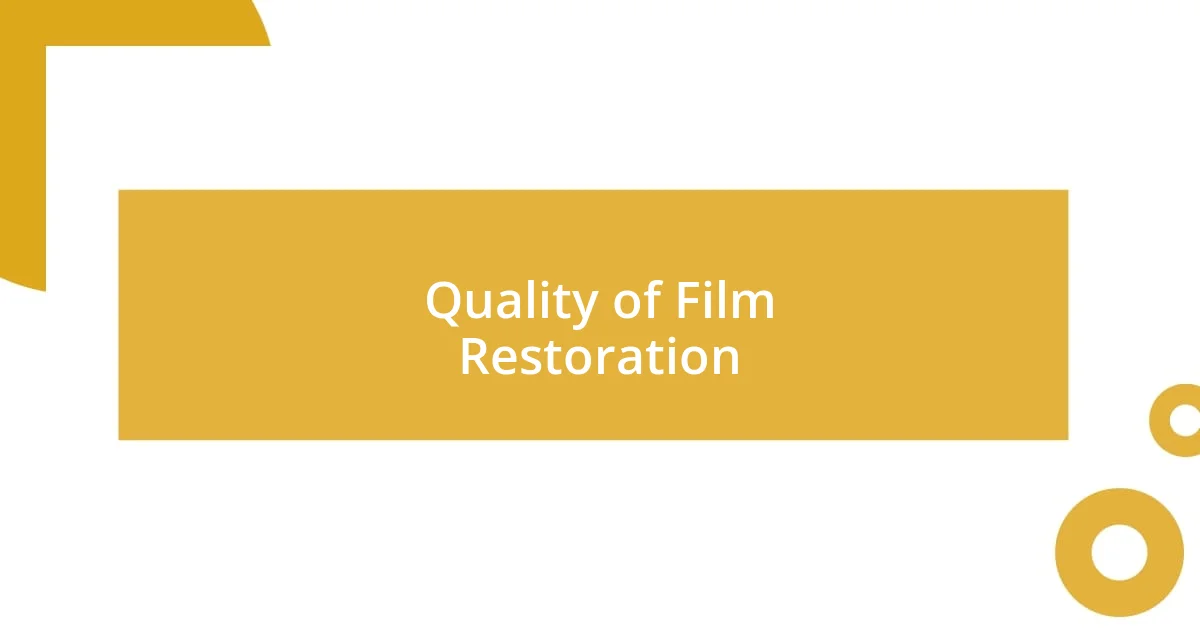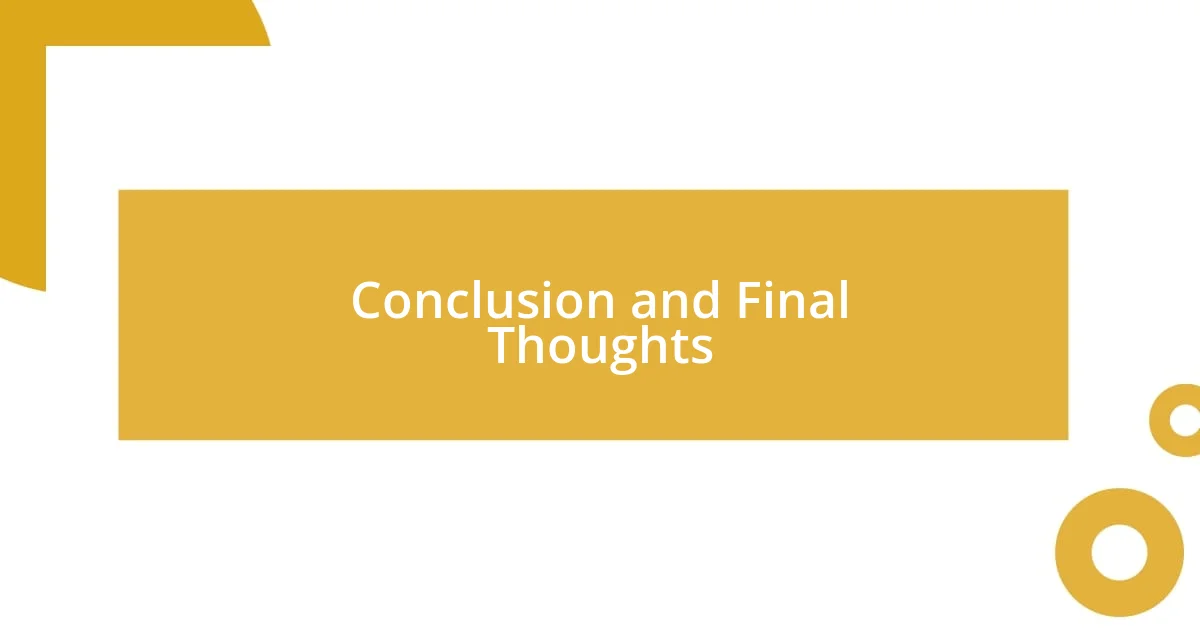Key takeaways:
- Criterion Channel offers a curated selection of classic films, emphasizing both well-known titles and hidden gems that invite critical engagement and discussion about societal issues.
- The platform enhances the viewing experience through high-quality film restorations and supplementary materials like interviews and documentaries, enriching the audience’s understanding of cinema.
- User-friendly navigation and community features foster a sense of connection among film enthusiasts, allowing for meaningful discussions and shared insights about classic films.

Introduction to Criterion Channel
Criterion Channel is a treasure trove for classic film lovers. I remember the first time I stumbled upon it; I was immediately captivated by the curated selection of iconic films that shaped cinema as we know it. Have you ever felt that rush of nostalgia and inspiration when watching a classic movie? It’s like stepping back in time while also gaining new insights into filmmaking.
The platform offers a unique blend of well-known classics alongside hidden gems that might have flown under the radar. I often find myself lost in their themed collections, like those focusing on a particular director or genre. Each selection feels intentional, guiding me through the rich tapestry of film history. Don’t you think it’s fascinating how these films can spark conversations about societal issues that are just as relevant today?
What sets Criterion Channel apart from other streaming services is not just its extensive library, but its commitment to film education. I’ve often found joy in the supplementary materials, such as interviews, essays, and behind-the-scenes footage that deepen my understanding of the films. This thoughtful approach invites viewers not just to watch, but to engage critically with the art form. Isn’t it invigorating to realize that these classic films have so much more to offer than just entertainment?

Overview of Classics Available
When exploring the classics available on Criterion Channel, I’ve come across an impressive array of films that cater to both established film buffs and those just beginning their cinematic journey. While scrolling through their collection, I was reminded of the time I watched Sunrise: A Song of Two Humans, which left me in awe of its artistry. The way it captures emotion and narrative through visual storytelling is truly unparalleled.
Here’s a sample of the notable classics you can find:
- Casablanca (1942)
- The Cabinet of Dr. Caligari (1920)
- Citizen Kane (1941)
- The General (1926)
- The Birth of a Nation (1915)
Each film not only showcases the talent of its creators but also invites viewers into the cultural context of its time. I often find myself reflecting on how these films resonate with our present-day experiences, making them endlessly relevant. It’s fascinating to think that just by watching, we can connect with stories that span generations.

Criteria for Evaluating Classics
When evaluating classics, I find that one of the fundamental criteria is their cultural impact. Films that have shaped societal norms or influenced future filmmakers tend to resonate more with me. For instance, when I watch Gone with the Wind, I often reflect on its portrayal of complex themes surrounding race and gender. It prompts me to consider how far we’ve come and how far we still have to go in storytelling.
Another crucial aspect is the technical craftsmanship of the films. The impeccable cinematography and editing in Vertigo offer so much to dissect and appreciate. I recall being mesmerized by its use of color and perspective; it’s fascinating how these elements enhance the story’s tension and allure. Have you ever felt that a film’s visual style draws you into another world altogether? It’s this intricate detail that can elevate a classic to timeless status.
Finally, I believe that emotional resonance is vital in evaluating classic films. A movie like Schindler’s List stays with me long after viewing. The emotional journey it takes you on is so powerful, prompting discussions about morality, humanity, and history. These films don’t just entertain; they evoke feelings that encourage reflection and dialogue long after the credits roll.
| Criteria | Description |
|---|---|
| Cultural Impact | How the film influenced society and future filmmakers. |
| Technical Craftsmanship | The quality of cinematography, editing, and other visual aspects. |
| Emotional Resonance | The ability to evoke deep feelings and provoke thought. |

User Experience and Interface Assessment
User experience on Criterion Channel feels thoughtfully designed, making it a pleasure to navigate. When I first explored the interface, I noticed how intuitively the films are categorized, which immediately caught my attention. It reminded me of my last visit to a local library where it was easy to find gems tucked away among countless shelves. Isn’t it nice when technology can mimic that sense of discovery?
As I interacted with the platform, the seamless transition between browsing and watching allowed for an engaging experience. I distinctly remember how I clicked on Double Indemnity, and within moments, I was drawn into its noir world without any frustrating load times. It felt almost like the film was waiting for me, and I couldn’t help but smile at that lovely synergy between user-friendly design and cinematic artistry.
One aspect I particularly appreciated was the option to create lists and save favorites. I often find myself curating my own collection, much like how I used to arrange my DVD shelf. Engaging with the platform this way not only personalizes my viewing experience but also inspires me to revisit films I hold dear. Have you ever created your own personalized list and felt a sense of ownership over those selections? It transforms the way you approach viewing, making it feel special and uniquely yours.

Quality of Film Restoration
When it comes to the quality of film restoration, I often find myself marveling at the painstaking effort that goes into reviving these cinematic treasures. For instance, watching a beautifully restored version of Casablanca felt like stepping back in time. The clarity of the visuals brought Humphrey Bogart and Ingrid Bergman’s performances to life in a way I had never experienced before. Have you ever watched a classic film where the restoration work made it feel brand new? It can totally transform your viewing experience.
Another key factor that stands out to me is how restoration can enhance not just the picture but the sound as well. I remember my excitement while watching a restored version of The Wizard of Oz. The vibrant colors and rich audio made the iconic musical numbers feel even more enchanting. It’s almost as if the film’s essence was recharged, allowing me to appreciate its artistry all over again. Restorations like this remind us why these classics are beloved; they retain the spirit while rejuvenating the technical aspects that can fade over time.
In my view, an exceptional restoration does more than just fix scratches or improve resolution; it resurrects the original intent of the filmmakers. I once stumbled upon a restored version of Metropolis at a film festival, and it genuinely felt like a revelation. The contrast and detail were breathtaking, revealing nuances that eluded viewers in previous versions. This experience made me think about how much we might miss when classics are inadequately restored. Isn’t it thrilling to ponder what stories and emotions lie hidden in the frames of films we hold dear?

Additional Features and Benefits
One feature that continually impresses me is the extensive curated collections on Criterion Channel. It’s like having a knowledgeable friend who knows your taste and suggests films you might never have considered. Recently, I stumbled upon a collection of poetic cinema, and it led me to a stunning piece that resonated deeply with my love for both imagery and narrative depth. Have you ever found a hidden gem that felt like it was meant just for you? These curated lists spark excitement and make the viewing experience feel like an adventure into uncharted territories.
Additionally, I can’t overlook the bonus content that accompanies many films. I remember watching a documentary that paired perfectly with a classic I had just seen. It was as if a new layer of understanding had been unveiled, enriching my appreciation for the original work. This thoughtful inclusion of behind-the-scenes featurettes or interviews made me feel more connected to the filmmakers and their creative process. Don’t you love when a platform goes the extra mile to enhance your experience?
Moreover, the platform’s community features, like discussion forums, create a sense of camaraderie among film lovers. I recall an engaging conversation I had with a fellow viewer about the thematic elements of The Third Man. Sharing interpretations and insights can deepen one’s understanding of a film, making the classic cinema experience even more rewarding. It’s like the joy of discussing a book with passionate friends; the film transcends the screen and becomes a shared journey. Isn’t it amazing how films can connect us in such profound ways?

Conclusion and Final Thoughts
Reflecting on my experience with Criterion Channel, it’s clear that the platform offers something truly special for classic film aficionados. One evening, I settled in to watch Breakfast at Tiffany’s and was captivated not just by the stunning visuals but by the way the film effortlessly transported me to another era. Isn’t it remarkable how a well-chosen film can evoke such nostalgia? Instead of merely watching a movie, I felt like I was stepping into a vibrant world where every detail counted.
Another aspect that keeps me returning is the community and discussion opportunities. I once shared my thoughts on Harold and Maude with a group online, and it ignited a lively exchange about how its themes of love and life resonate differently as we age. Have you ever shared a perspective on a movie only to find it blossoming into deeper conversations? Those moments remind me that cinema is not just about the screen; it’s about connection and shared experiences that linger long after the credits roll.
In the end, Criterion Channel has enriched my appreciation for classic films in ways I couldn’t have anticipated. Each viewing experience is not just about entertainment; it’s about discovering layers of meaning and community that elevate the journey. Don’t you agree that engaging so deeply with film is where the true magic lies?












